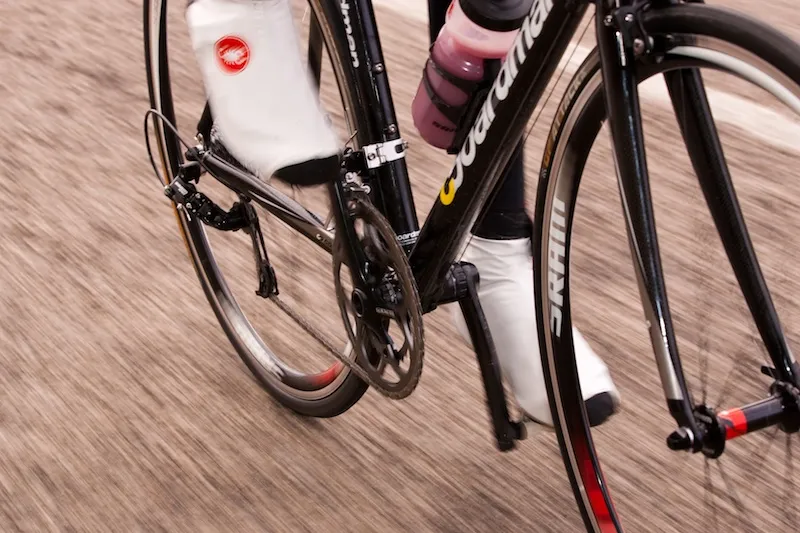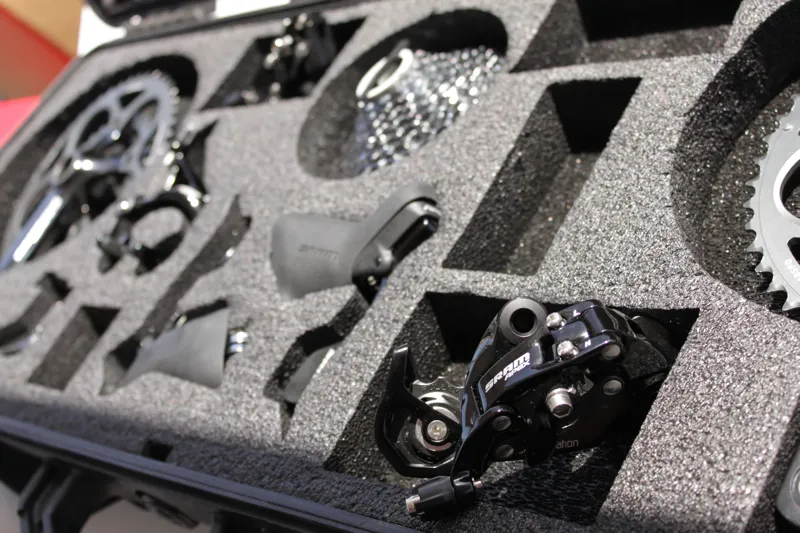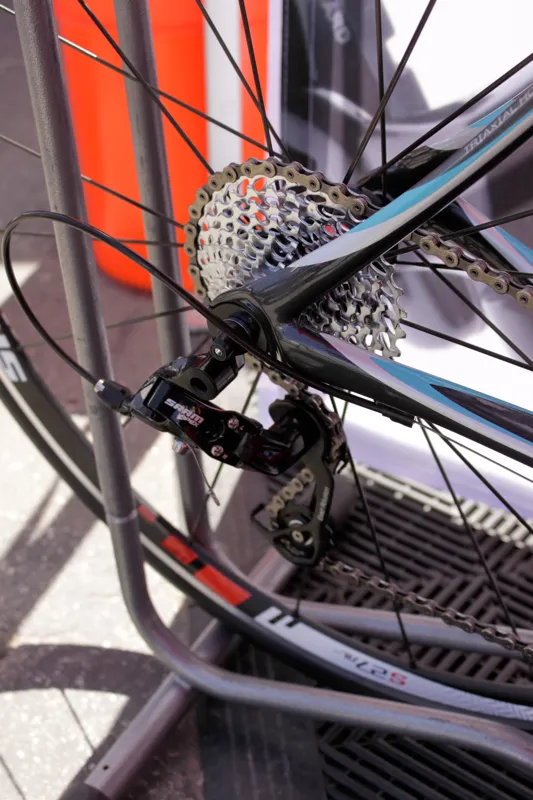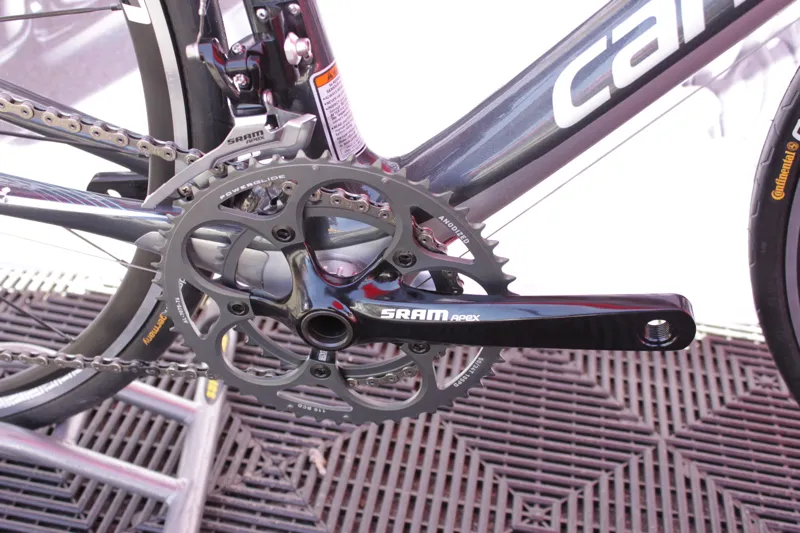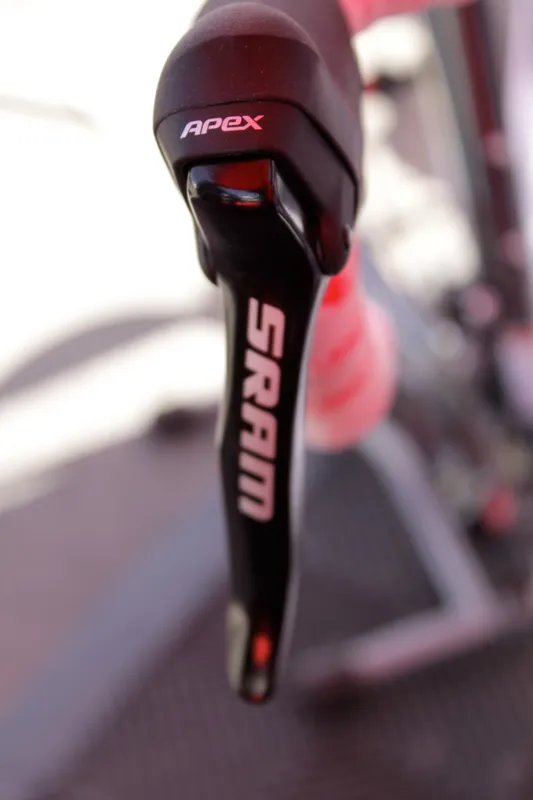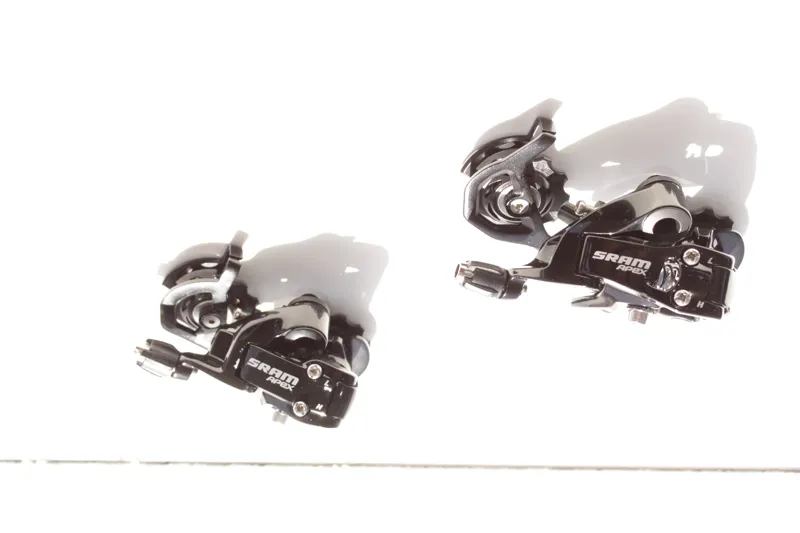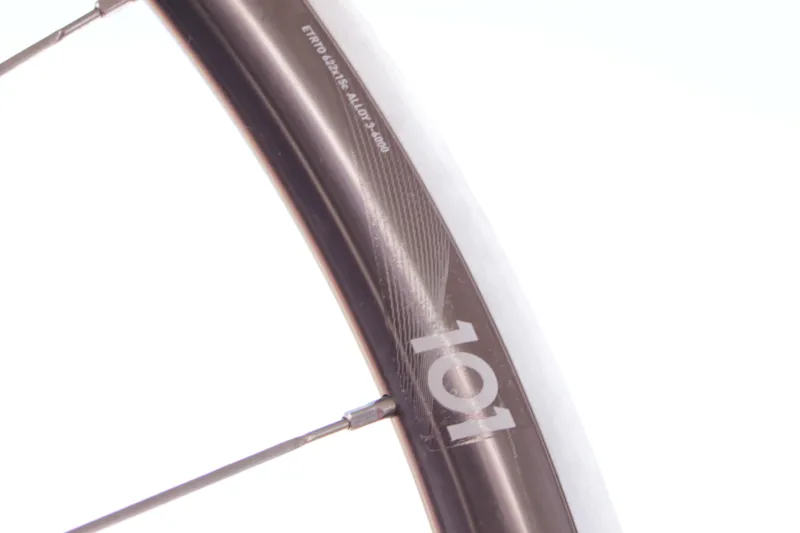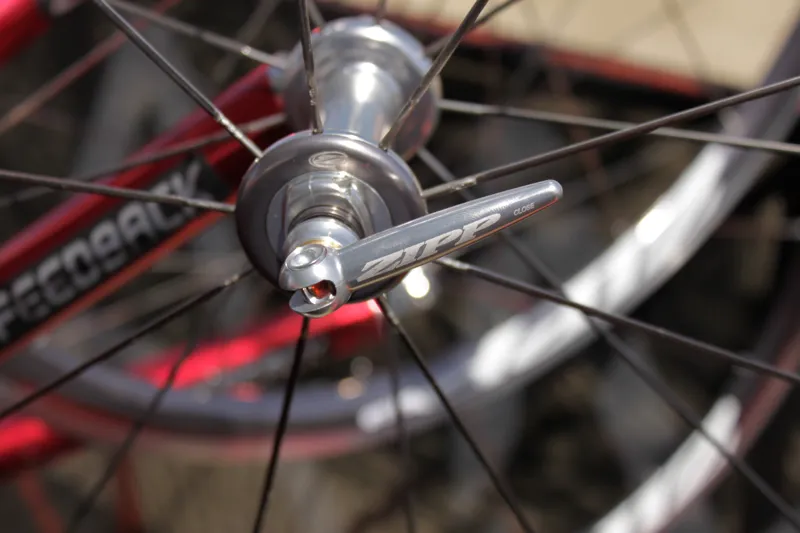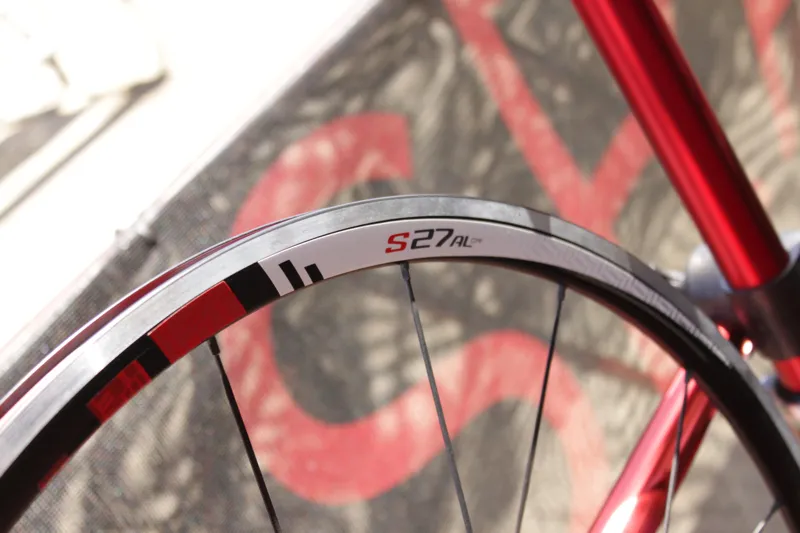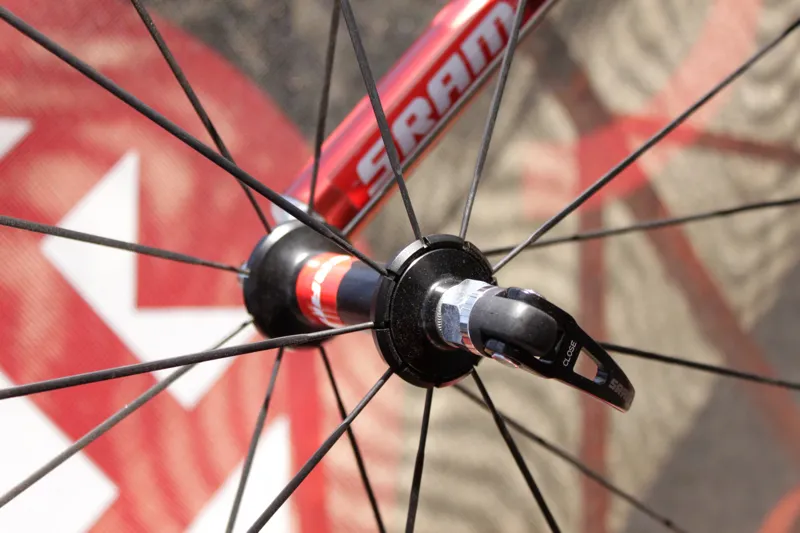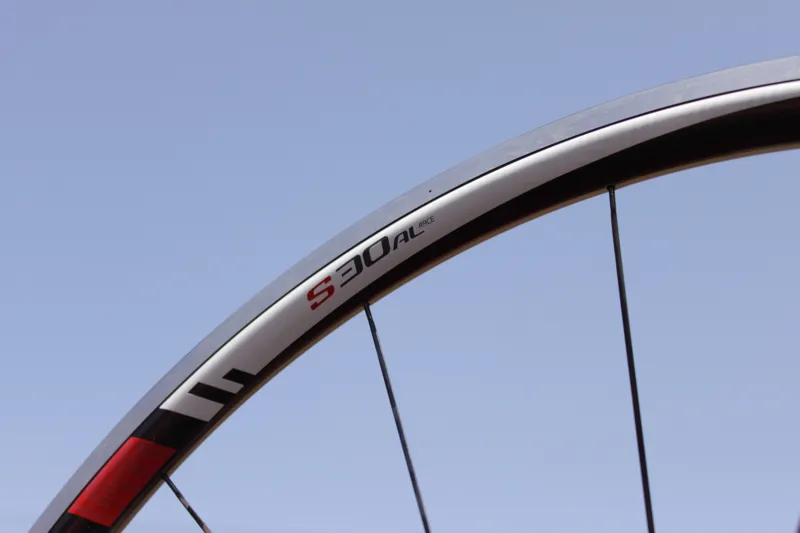There are two stories surrounding SRAM’s new Apex groupset. The one they want to talk is about why it’s better than a triple; the one we want to tell is the truly impressive feat of trickledown technology that it represents.
Apex is meant to kill the triple chainset on road bikes and it seems it should do just that. A 34/50-tooth chainset paired to an 11-32T cassette offers a low gear of 34/32 or 27.9 gear inches (using Sheldon Brown’s online gear calculator), which should allow the average rider to scale just about any road climb.
Plus the front shifting is faster and the whole group is claimed to be 274g lighter than a triple. That’s the story SRAM are pushing with Apex and it seems like a good sell. (You can read more about Apex’s specifications from BikeRadar’s coverage of the groupset launch in February).
Riding Apex
It took riding up an impossibly steep canyon in the hills surrounding the Laguna Seca Raceway during this year's Sea Otter Classic to drive the most impressive aspect of Apex home. Ask it to shift from the 50T to the 34T chainring under power and it does; ask it to shift from the 30T to the 32T on a steep grade, under high-power, and it does.
Grab a handful of brake on a hairball descent and the SwissStop pads and forged callipers inspire the confidence to keep pushing, rather than cause you to freak out and back off. VeloNews’s Lennard Zinn played guinea pig brake tester by throwing his bike, by accident, into a decreasing radius switchback on a bumpy road at a good 15mph faster than he should have been going during SRAM’s test ride. It seems the Apex brakes were up to the task of his panic stop, as he was able kept himself upright.
Apex works and it works well. It’s also full of features, such as the DoubleTap shifters' reach adjustment. In fact, aside from the extra bit of weight, the (admittedly brand new) set we rode with offered very little degradation in performance compared to the rest of SRAM’s groups, except maybe Red.
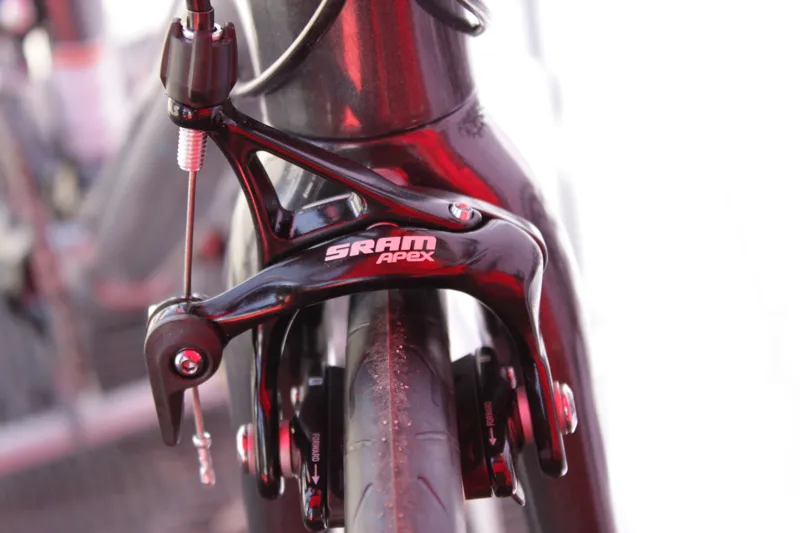
SRAM's Apex brake calliper has serious stopping power.
Couple its on-par performance with the fact that, at US$799, it costs considerably less – to the order of hundreds of dollars – than Shimano or Campagnolo's equivalent groups and the real story of Apex starts to shine through, whether you’re climbing or not.
Add the fact that SRAM offer the crankset in a standard 39/53T configuration, a choice of mid- or short-cage rear derailleur, and cassettes in a variety of options ranging from 11-23T to the new triple killing 11-32T, and you start to see how Apex will change the game when it comes to budget performance.
Yes, Apex is heavier than SRAM’s other groups at 2,407g (claimed with 11-32T cassette and 34/50T crankset), but not by much: Rival weighs 2,200g (claimed with 11-23T cassette) and the Flagship Red group is under 2,000g.
At this stage we can only judge the out-of-the-box performance of the new group. If Apex proves as durable as SRAM’s other road groups, we just might declare it the perfect group for cyclo-crossers – well, for B bikes at least. Apex should be on bikes and in shops for aftermarket sales by July.
Avid Shorty Ultimate cyclo-cross brakes
In addition to the new Apex group, SRAM’s road team were showing off the new Avid Shorty Ultimate cyclo-cross brake, which will be available this autumn. The new brake already has a world championship title under its belt as Zdeněk Štybar rode a set to victory in the Czech Republic in January.
The Ultimate is slightly heavier than its competition at a claimed 120g per wheel, but it offers the ability to change between wide- and low-profile settings, easy pad adjustment and incredible stiffness. The Shorty Ultimate will cost $90-$100 per wheel.
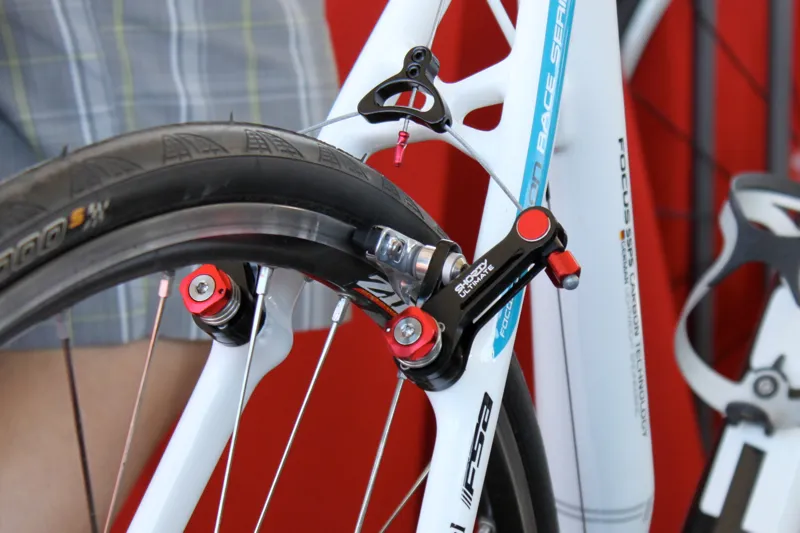
Avid Shorty Ultimate – a world championship proven cyclo-cross product
SRAM wheels
SRAM’s new aluminium wheel line that was launched last year at Interbike is just becoming available. There are three models: the S27 AL Comp (1,620g, $500) with 27mm-deep conventionally shaped rim; the workhorse S30 AL Sprint (1,495g, $750) with a 30mm-deep hybrid-toroidal rim, which pairs a toroidal shape with a flat braking surface; and the S30 AL Race (1,430g, $1,000), which features the same rim and hub bearings but upgraded hub shells (extra machining saves 10g), rim finish and Sapim CX-Ray spokes.
The S30 AL Sprint looks like the one to go for, since it features the same rim and hub bearings as the Race, for $250 less. It packs 99 percent of the top-tier set's performance at a price that’s 25 percent lower. It’s actually stiffer, because of its larger diameter Sapim CX stainless steel spokes, which add 60g.
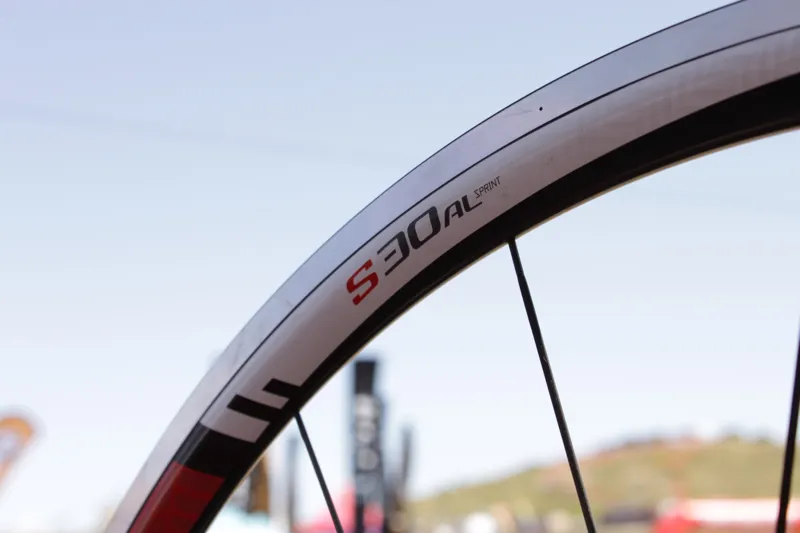
The S30 AL Race and workhorse Sprint wheelset share the same hybrid-toroidal rim
“It depends on your riding style,” said Bastien Donze, SRAM’s wheel systems product manager, when asked which wheelset performs better. “If you’re a tall, powerful guy then maybe you’ll prefer the Sprints, but the Races act livelier. The super-thin CX-Rays give an extra snappy feel to the wheels.”
Zipp’s 101 is ready
Zipp’s 101 wheelset is built with the first fully toroidal alloy rims on the market. A toroidal rim pulls the aerodynamic profile through the brake track, producing an angled braking surface, like that found on the manufacturer's carbon wheels. The shape is said to improve aerodynamic performance to such an extent that the 30mm alloy rim tests better in the wind tunnel than 50mm deep flat rims.
According to Zipp, the 101 is comparable to their 202 carbon rim in terms of aerodynamic performance. The key is how the rim interacts with the tyre. Zipp say the 101 is best used with 21mm to 23mm tyres, but will safely accept up to 35mm. The rim’s inner diameter measures 22.5mm and the wheelset uses Zipp’s 88/188 hubset. The 101 weighs 1,500g and costs $1,300.
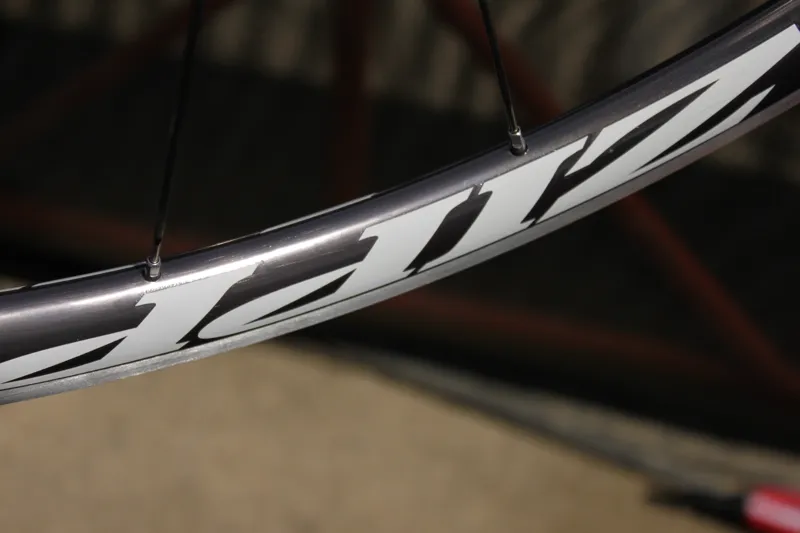
The bike industry's first toroidal alloy rim

